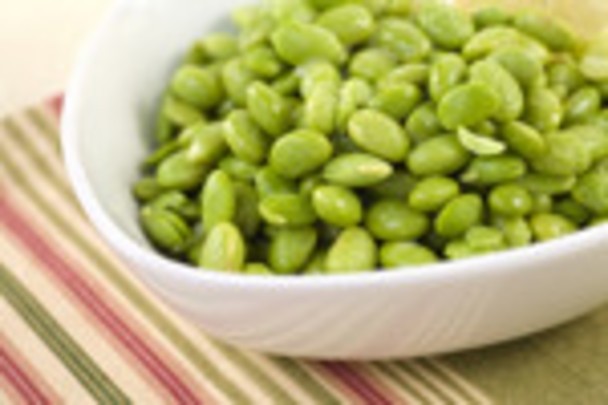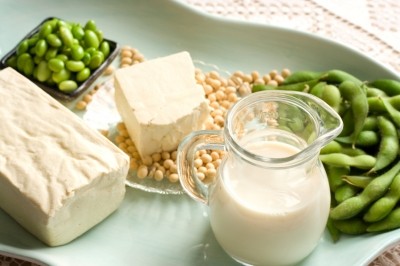Fermented soy’s fat busting potential linked to genes

Daily supplementation with the fermented soy paste known as doenjang did not produce any general changes in body fat in 51 test subjects, but when the researchers focused on a specific gene linked to body weight gain they found that people with a specific form of the gene did experience less fat build up, according to findings published in Nutrition Research.
Isoflavones
The effects of doenjang are linked to its content of isoflavones and the form of the isoflavones present, said the researchers, led by Yongsoon Park from Hanyang University in Seoul.
Soy isoflavones are well known phytoestrogens - active substances derived from plants that have a weak estrogen-like action. They have been studied for their role in cancer prevention and slowing down the ageing process in peri-menopausal women..
Typically, one gram of soybeans contains between 0.1 and 5 milligrams of isoflavones and the majority of these are in the glucoside form. The isoflavones in fermented soy products are predominantly in the aglycone form.
In the doenjang used in the new study, the daily isoflavone dose was between 20 and 30 mg, with the majority in the aglycone form, said the researchers.
“Whether or not dietary soy has effects on obesity through the mimicking of estrogen is still a matter of controversial debate,” they added.
New study
For their new study, the Korean researchers recruited 51 people with a BMI of at least 23 kg/m2 and randomly assigned them to receive 9.9 grams of placebo or doenjang every day for 12 weeks.
The study focused on the different types of alleles (forms of the gene) on UCP-1 (Uncoupling protein-1). The alleles studied were the A and G alleles.
“The frequency of the G allele of the polymorphism in the UCP-1 gene was 61% in our study, which is higher than that reported in white populations (21%-29%),” explained the researchers.
Results showed that, in general, the fermented soy paste did not significantly affect body fat compared with placebo. However, “there was a significantly reduced amount [9%] of visceral fat in subjects with the G allele of UCP-1 polymorphism”.
Doenjang supplementation was also associated with a significant increase in free fatty acids in people with the A and G allele by 19% and 12%, respectively.
“The results of the present study accept the hypothesis that doenjang supplementation may significantly reduce the amount of visceral fat in overweight subjects who have the mutant allele of the UCP-1 polymorphism and that elevated lipolysis may evoke the release of fatty acids from visceral adipocytes,” wrote the researchers.
“To the best of our knowledge, this is the first study to test the effect of doenjang in humans according to the genotype of the UCP-1 polymorphism.
“However, the influence of the polymorphism on visceral fat in response to doenjang supplementation should be confirmed in other populations because the minor allele frequency may differ between ethnic groups.”
Market potential
With the World Health Organization estimating that by 2015, there will be more than 1.5 billion overweight consumers, the opportunities for a scientifically-substantiated weight management product are impressive.
The slimming ingredients market can be divided into five groups based on the mechanisms of action – boosting fat burning/ thermogenesis, inhibiting protein breakdown, suppressing appetite/boosting satiety (feeling of fullness), blocking fat absorption, and regulating mood (linked to food consumption).
The market for food, beverage and supplement weight management products is already valued at $3.64bn (2009 figures) in the US, according to Euromonitor. In Western Europe, the market was worth $1.3bn in 2009.
Source: Nutrition Research
January 2012, Volume 32, Issue 1, Pages 8-14, doi: 10.1016/j.nutres.2011.12.002
“Supplementation of Korean fermented soy paste doenjang reduces visceral fat in overweight subjects with mutant uncoupling protein-1 allele”
Authors: M. Lee, S. Chae, Y. Cha, Y. Park















